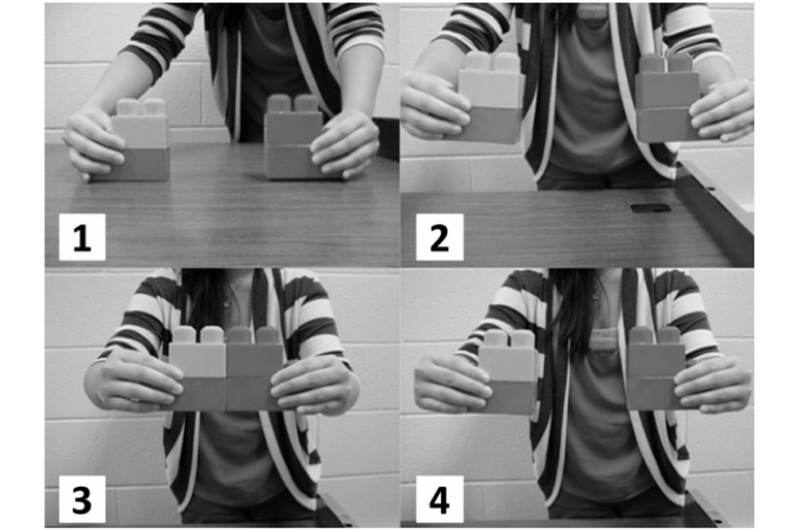July 1, 2016 report
Social priming experiment suggests physical magnets can cause people to feel closer to a partner

(Medical Xpress)—A team of researchers working at Texas A&M University has found that people playing with physical magnets can come to feel closer to their romantic partner. In their paper posted on the open access site PLOS ONE, the team describes two nearly identical experiments they conducted with volunteers, their results and why they believe they have found an incidence of social priming.
Social priming is a form experimentation where volunteers are "primed' with certain information, then tested to see if the priming has had any effect on their feelings or behavior regarding something else. Such experiments have, the researchers note, been subjected to criticism in the psychology community of late due to the high number of studies that released results that proved to be unrepeatable by others. In this new effort, the researchers sought to address that problem by conducting essentially the same experiment twice.
The first experiment consisted of asking 120 male and female students who were currently in a romantic relationship with someone, to sit and play with some blocks on a table—unbeknownst to the volunteers they had been divided into three groups—one group played with blocks that were magnetically attractive, another with blocks that were magnetically repellant and the third with blocks with no magnetic traits. All three groups were then asked to take a survey regarding their perception of the degree of romance in their relationships. After studying the data, the researchers found that those volunteers who had played with the magnetically attractive blocks reported having stronger feelings of love and attachment to their romantic partners, than people in the other two groups.
The second experiment was identical to the first except that there were 150 volunteers and only two groups; those playing with attractive blocks and those with repellant blocks. The researchers found that those that had played with the attractive blocks once again reported feeling more connected to their romantic partner than the other group. They noted that the second group reported less feelings of commitment, however, which the researchers suggested could be chalked up to the experiment being conducted later in the school year.
This study, the team reports, suggests that people take the metaphor of attraction between lovers as somewhat literal and because of that, when they take part in a demonstration of magnetic attraction, they are reminded of their attraction to their romantic partner. They do acknowledge that their experiment does not provide evidence of how or why the effect came about, though they do discuss several theoretical possibilities.
More information: Andrew G. Christy et al. Animal Magnetism: Metaphoric Cues Alter Perceptions of Romantic Partners and Relationships, PLOS ONE (2016). DOI: 10.1371/journal.pone.0155943
Abstract
The psychological state of love is difficult to define, and we often rely on metaphors to communicate about this state and its constituent experiences. Commonly, these metaphors liken love to a physical force—it sweeps us off our feet, causes sparks to fly, and ignites flames of passion. Even the use of "attraction" to refer to romantic interest, commonplace in both popular and scholarly discourse, implies a force propelling two objects together. The present research examined the effects of exposing participants to a physical force (magnetism) on subsequent judgments of romantic outcomes. Across two studies, participants exposed to magnets reported greater levels of satisfaction, attraction, intimacy, and commitment.
© 2016 Medical Xpress




















